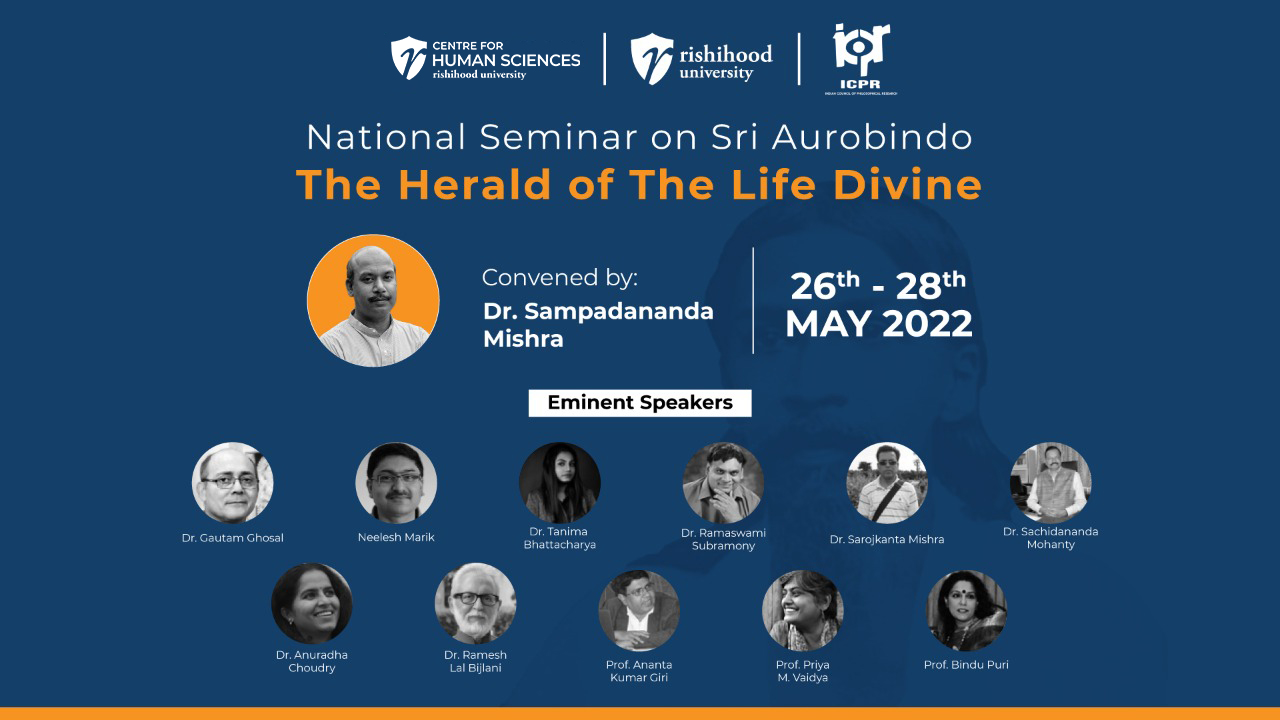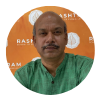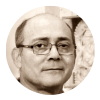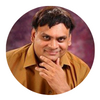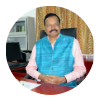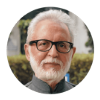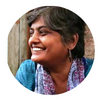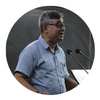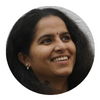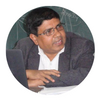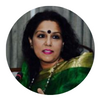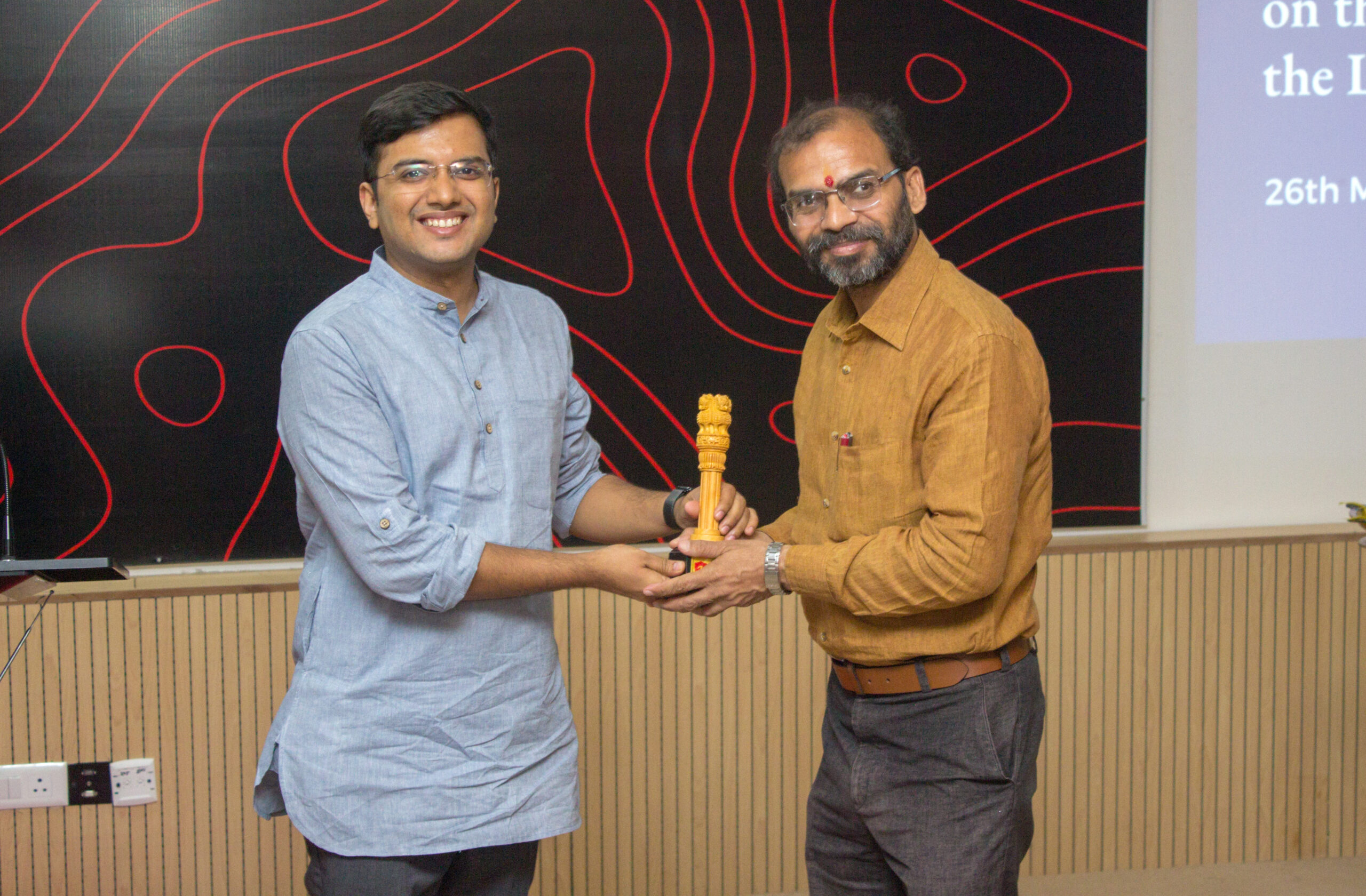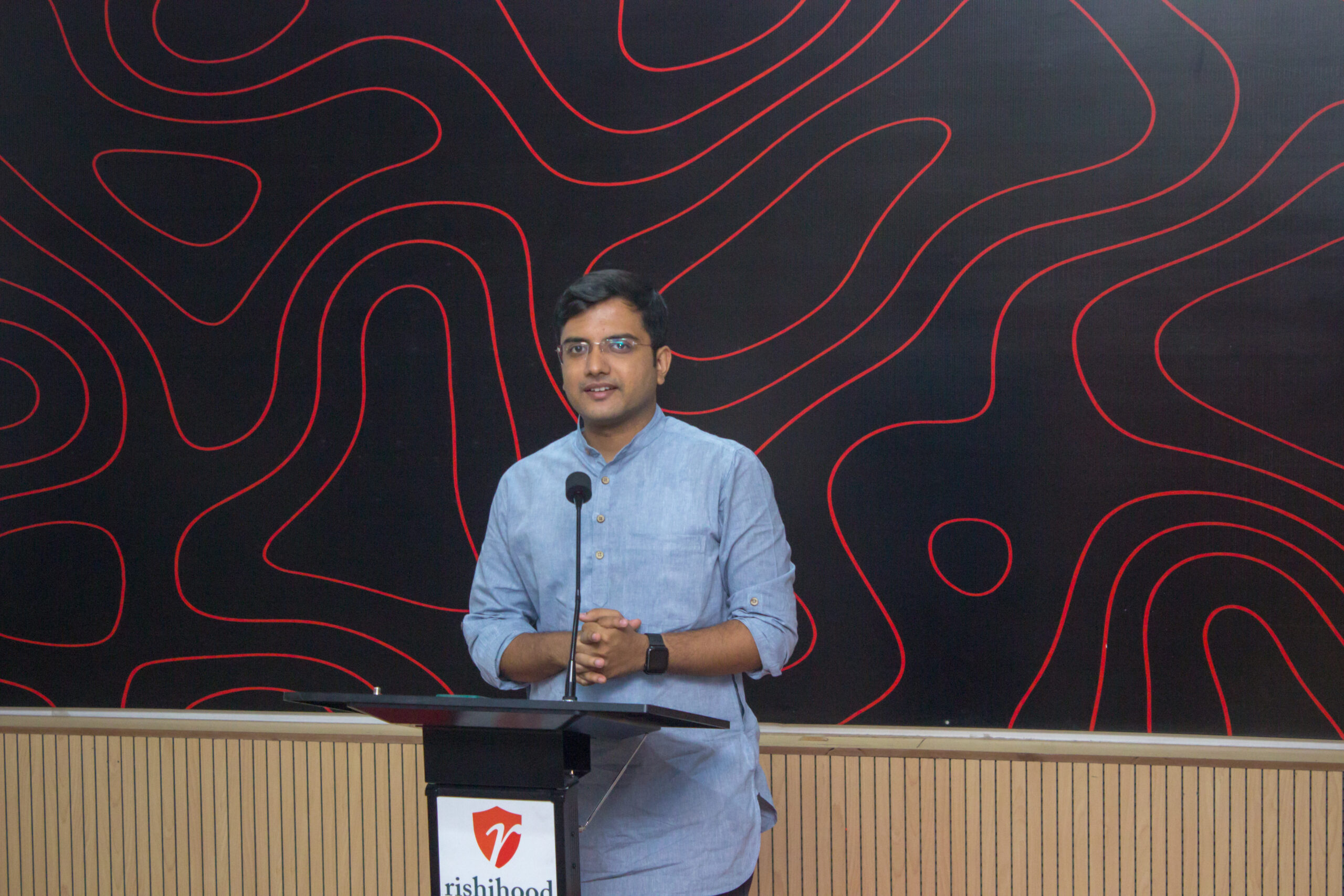The first day was graced by the presence of Dr Sachchidananda Mishra, Member- Secretary of ICPR as the Chief Guest and Dr Kundan Singh, Hindu University of America, as the keynote speaker. The event began with an invocation of the Divine. The learners of Rashtram School of Public Leadership, Suprabha and Dhawan, made the entire atmosphere serene with the chanting the invocation mantra. The seminar formally began with the deep prajjwalan.
Dr Sampadananda Mishra gave the welcome address in which he introduced the chief guest, the keynote speaker, and the other esteemed invited speakers. He spoke on the life of Sri Aurobindo and the Mother and highlighted the need for contextualising Sri Aurobindo’s philosophy in the modern context.
Shri Sahil Agarwal, CEO of Rishihood University, spoke to the invited speakers and other participants. He informed them about the vision of Rishihood University and the history of its conception, and how the name ‘Rishihood’ was inspired by Swami Vivekananda, who first used the term in his writings. He pointed out the symbolic importance of the University as a centre for learning in Sonipat, earlier known as Swarnprastha, which was one among the five villages which Pandavas demanded in the Mahabharata. He also highlighted the importance of the three day National Seminar on Sri Aurobindo’s Life Divine as an important event in making the current generation get acquainted with the philosophy of the Rishi of Indic Renaissance and how this wisdom can be incorporated not just as a part of the curriculum, but to integrate it with the soul of the University.
In the keynote address, Dr Kundan Singh, professor at the Hindu University of America, shared his thoughts on Sri Aurobindo’s Life Divine and how Sri Aurobindo’s thoughts could help in achieving the renaissance that we are trying to have in India. He emphasised upon the fact that the idea of Brahma, the one that manifests into many, has been, since antiquity, at the core of our civilization and discussed how our rishis and sages, including Sri Aurobindo, have tried to describe how this One entity, the Sat-chit-ananda, manifests itself into the many. He stressed upon the importance of beginning with the cosmology and epistemology developed by our seers and sages for the development of Indian Knowledge Systems while pointing out the fallacy of looking at our Indian knowledge systems with the western epistemology. He talked, in context of Sri Aurobindo’s philosophy, about the need for transcending the mind, to go beyond the intellect to have the knowledge of the Brahman while also stressing upon the need for its development. He pointed out that the “mind is not the generator of knowledge”, that the “mind has to become very powerful but it can’t become an impediment to our growth.”
In the Chairperson’s Address, Shri Sachchidananda Mishra ji, the Member-Secretary of ICPR, conveyed his contentment and happiness for the organising of the seminar on Sri Aurobindo’s The Life Divine. He emphasised on the need for looking at Sri Aurobindo’s philosophy through the lens of Nyaya and Advaita Vedanta. He enlarged upon the parallenls between the philosophy of Adi Shankaracharya and Sri Aurobindo and how these two Rishis were, in essence, propounding the philosophy of Vedanta. He referred to western philosophy as “broken” and attested it the example of the Dark Ages and contrasted it with the continuous, unbroken tradition of Indian philosophy, which has its roots in the Vedic and Upanishadic thought. Discussing the idea of duality, non-duality, the idea of senses, perception, intellect and human mind in great detail, he explained how everything perceived through senses and intellect come under the realm of Mithya, which he clarified as being unreal, but illusionary. He quoted the Kenopanishad to explain the idea of Brahma and said “What can not be perceived through manas is Brahm.” He explained the idea of Integral Advaitism as propounded by Sri Aurobindo and stressed upon the need to study Sri Aurobindo in a holistic way, as a product of his time, a freedom fighter, a poet, a leader, a sadhak, as a great scholar of western literature and philosophy and well as an ardent scholar of Indian philosophy, in order to understand him completely. Referring to The Life Divine as a response to the western culture, he explained how contrary to western culture engulfed in duality perceiving the self, nature and the Supreme as different, Sri Aurobindo talks of non-dualism and the divinity of life itself, and how Brahman who created this universe is not separate from this universe but manifests Himself as the world. The inaugural event concluded with the observance of a minute of silence.
The Plenary Session began after a short tea break with a minute of silence, in which Dr Sachidananda Mohanty, former HoD of the Department of English at Hyderabad University and former Vice-Chancellor of Central University of Odisha, presented his paper titled, “A ‘Denial’ and a ‘Refusal’ Rereading the Matter-Spirit Dichotomy in The Life Divine”. In his presentation, Dr Mohanty spoke on the parallels as well as differences between Sri Aurobindo’s philosophy and the philosophy of the West, specially with reference to poets and philosophers like William Blake, William Wordsworth, Nietzche, Simone de Buvior among others. He also presented an extensive discussion on the relevance of Sri Aurobindo in our times, the idea of the Supermind and how Sri Aurobindo saw Man as “a ‘transitional being’ who would be surpassed by the Superman, endowed with a suprarational faculty, called the Supermind.” He discussed how, even in the difficult times when the entire world was submerged in the fires of the World Wars, massacre, riots and unimaginable violence, Sri Aurobindo was talking about the divinity of life and how, in our times, his philosophy becomes all the more relevant amidst the rising hatred and ongoing wars between nations. He concluded by putting stress on the point that “Religion too needs to cleanse itself from the burden of dogma, creeds and cults and emerge as a life-affirming Spirituality. Only then could the two contraries of the Life Divine could find a lasting union and reconciliation.”
The Plenary Session concluded with a minute of silence after which the participants and speakers proceeded to have lunch.
After the lunch break the first presentation session began with the observance of a minute of silence and it was chaired by Dr Sachidananda Mohanty. The first presenter in this session was Dr Goutam Ghosal, former Professor of English at Visva Bharati University, presented his paper titled, “Style and Vision in the Life Divine: Tradition and Innovation.”
Dr Ghosal tracked the progress in the style of Sri Aurobindo’s writings over the years, especially from 1906 to 1921, and highlighted the significance of yoga in bringing about the change. He highlighted the importance of Nature and evolution in Sri Aurobindo’s philosophy. He also pointed out that, “The texture of this (Sri Aurobindo’s) prose is both logical and visional. It is a prose of experience, which is to be seen throughout the Life Divine.” While enlarging upon the nature of metaphors in Sri Aurobindo’s writings, Dr Ghosal stressed upon the terse and economical nature of the metaphors, which often escapes the reader’s attention if he is not paying enough attention while also pointing out the influence of the style of Victorian period, especially the writings of James Anthony Froude. He concluded by explaining how Sri Aurobindo’s the Life Divine, along with being the “intellectual statement of his adventure of consciousness” was also an effort by Sri Aurobindo to experiment with English language, which he foresaw as becoming a global language and so he used “frequent antitheses and paradoxes, rapid apophthegms, followed by long expository passages, brilliant metaphors created as well as transferred from the Sanskrit.”
In the second presentation, Dr Sheojee Singh, Associate Professor of Physics at Government College of Education, Chandigarh, presented his paper titled, “Human Aspiration and the Future of Mankind-The Unique Vision of Sri Aurobindo.” He discussed the varied aspects of human aspiration along with its significance and pointed out how Sri Aurobindo has established that evolution of consciousness is the only way out of the present crisis, and aspiration is one of the central forces guiding the evolution of consciousness towards perfect perfection. He laid stress on the dynamic nature of human development and the need for leadership that is born out of the flame of aspiration, which has the potential to purify all ingredients of human activities in the “crucible of conscious living attuned to the Divine” and ensure a bright future for the entire human race. He explained the concept of ‘avtars’ and its importance in the context of aspiration and remarked that “Avatarhood in the Indian tradition is a powerful means to show the fulfillment of the promise by the Divine to help remove the obstacles in the path of progress of humanity towards truth-oriented life.” He concluded by pointing out that all human aspiration and endeavours, though being the most important factors in the development of mankind, need to have the touch of God for it to find meaning.
The final paper for the first day was presented by Shri Abhishek Tripathi, doctoral student at the Psychology and Cognitive Science Department, Sapienza University of Rome, titled, “Sri Aurobindo Less Known: Involution-Evolution of Self in Tāntrikasiddhiprakaraṇam.”
Shri Tripathi presented a brief discussion on the Tantric tradition in India. He traced the etymology of the word Tantra and explained how it was an important aspect in Sri Aurobindo’s philosophy of Integral Yoga. He pointed out how and why Sri Aurobindo advocates for the integration of psycho-philosophical understanding of Yoga, and meditation.
After the presentations, the chairperson, Dr Sachidananda Mohanty summarised the entire session and shared his observations with important remarks.
The first day concluded with an open discussion amongst the participants and the invited speakers on Sri Aurobindo’s Life Divine, his life as well as his philosophy as a whole.
The day ended with the vote of thanks and the observance of a minute of silence, after which all the participants proceeded to have tea and snacks.
